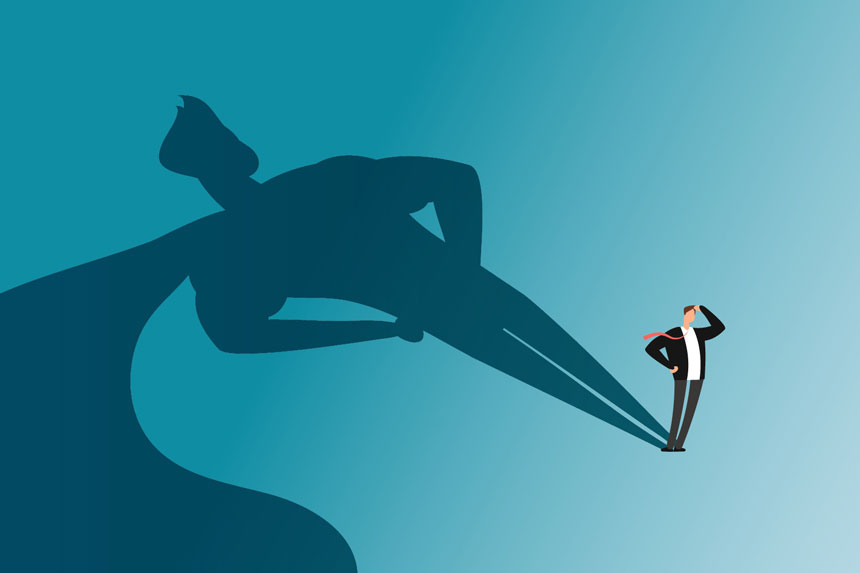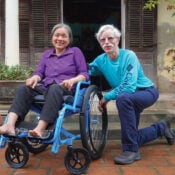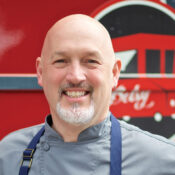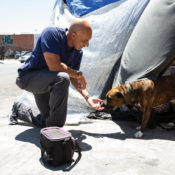My first “Everyday Heroes” column began with a suicidal veteran named Blade. He had served as a Marine Corps medic for an artillery unit in Iraq, and after returning home to California, he struggled with PTSD, nightmares, alcoholism, and sudden rage.
“I need someone to love me,” Blade told a suicide hotline.
The next day, he applied for a companion dog with Pets for Vets, a nonprofit that pairs animals with veterans. Blade was matched with D.D., an abandoned pit bull/Labrador mix — all of Pets for Vets’ animals are rescued from shelters — and the bond was instantaneous. D.D. was trained to wake Blade during nightmares, and her presence soothed him. “D.D. saved my life,” Blade said.
Pets for Vets was founded by animal trainer Clarissa Black. She was the first person I profiled back in 2018, and I was moved by her compassion, her vigor, and the joy she felt from her work.
“I love seeing the smiles on the veterans’ faces and the happy body language of the dogs,” Black said. “One gentleman told me that he lost his heart and soul in Iraq, but his dog helped him navigate the minefield of his emotions. He was able to love again.”
I’ve profiled 28 people in this column, and my response is always the same. I feel blessed. Blessed to hear their stories of generosity and love, blessed to witness their empathy, blessed to feel a warm slice of the light they share with the world. As we begin our sixth year of “Everyday Heroes,” these are the biggest lessons I’ve learned.
1. We’re Stronger Than We Think
Over the past few years, I’ve faced some challenges. I’m in the middle of a divorce. I had a heart attack. I sought help to address childhood issues I’d concealed my entire life.
Throughout my journey, I’ve been inspired by the steely resilience of the people I’ve profiled. In 2022, I interviewed skier Roy Tuscany, who suffered a devastating spinal cord injury after crashing on the slopes. Three nights after the accident, consumed by pain, Tuscany told his mother that he wanted to die.
“I didn’t raise a son to say those words,” she said. “Don’t you ever say those words again.”
Her resolve and unconditional love helped spur Tuscany’s recovery. He relearned to walk and started the High Fives Foundation to assist others recovering from life-altering injuries. Frequently, Tuscany visits patients at their bedside.
“[Roy] goes into the hospital, into the ICU, and he lifts up people that have had these hard experiences,” said Becca Lefanowicz, the foundation’s director of fundraising and media. “He tells them, ‘Hey, life might not be the same, but it can still be awesome.’”
2. Generosity Can Ignite Hope
“When someone feels cared about, you can change the entire direction of their life.”
Paul Caccamo told me that in 2020. Caccamo is the founder and CEO of Up2Us Sports, which trains young adults to be coaches in low-income communities. Up2Us coaches, he said, send a message to kids: “Regardless of what happens on this field, on this court, in this ice hockey rink, I care. And I’m going to care tomorrow, and I’m going to care next week.” When children hear that, “it’s amazing how it changes their view of themselves,” he said.
Rich Akwo sends that same message to homeless individuals in Baltimore. On weekly Selfless Saturday events hosted by his organization, Generosity Global, roughly 400 people eat a hot meal, shower in a truck equipped with private stalls, sift through racks of clothes, and receive haircuts, toiletries, drug counseling, job advice, and mental health services. Akwo understands their plight: During a rough patch in his life, he lived in his car for three months.
“It’s dignity restored,” Akwo said of the services. “People have hope again because they know that someone actually cares.”
3. Everyone Has Potential
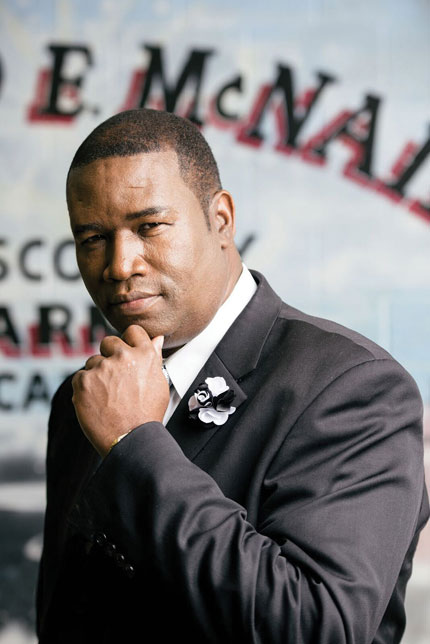
When he was a teenager, Orrin Hudson committed petty crimes. Then a teacher taught him to play chess — and he was hooked. Hudson became the first African American to win the city chess championship in his hometown of Birmingham, Alabama. These days, he teaches chess to at-risk children through his nonprofit, Be Someone. The goal is to instill the same qualities in kids that he learned from chess: discipline, focus, curiosity, patience.
“I tell children, ‘When I look at you, I see me,’” Hudson said. “‘I was just like you, but here are some things I did differently. And you can too. If I can do it, you can do it. No one is better than you. If we make smart moves, we can get great results.’”
4. You Can Reinvent Your Life

Darrion Cockrell’s trials began in childhood. When he was 4, his father was murdered. At age 6, with his mother addicted to crack, he entered the foster care system. By age 10, he had joined a gang. “When I think back, it’s crazy how many times I see myself sitting alone crying because I felt like my life was nothing,” he said. And yet through brains, resolve, and the help of pivotal people at pivotal moments, Cockrell entered college. In 2020, he was named Missouri’s Teacher of the Year.
Carl Allamby transformed himself at a later age. For decades, Allamby worked as an auto mechanic and owned multiple repair shops. But as a child, he wanted to be a doctor, and the dream persisted. So Allamby sold his business and went to med school, trading leaky carburetors for clogged arteries as an emergency medical physician at the Cleveland Clinic. His age when he graduated from med school: 47.
5. Small Moments Can Have Big Impact
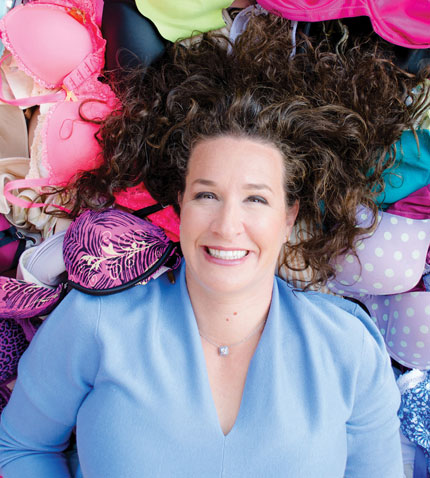
Our Everyday Heroes do incredible work, but many are “accidental activists,” as Dana Marlowe once told me.
Marlowe is the founder of I Support the Girls, which distributes bras and feminine hygiene products to homeless shelters and organizations worldwide. Its origin story: After losing 35 pounds, Marlowe had gone bra shopping and asked the clerk about donating her old bras. “Homeless women need bras,” the woman told her. So an inspired Marlowe contacted a local shelter and learned that people rarely donate socks, underwear, or bras (she later met a homeless woman who hadn’t received a new bra in 30 years).
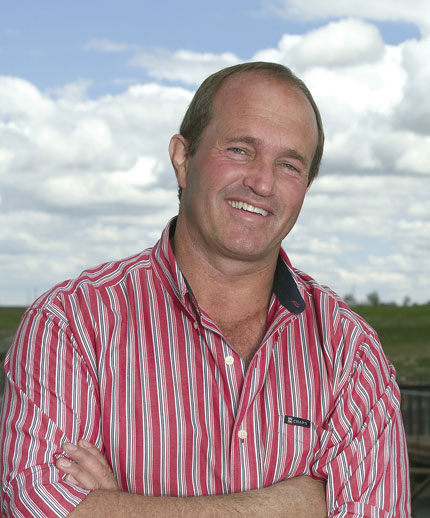
“It was a turning point,” she said. “I didn’t know that homeless women needed bras, which made me think: What else don’t I know?”
Until she was a junior in high school, Julia Warren didn’t know that many low-income children in her home of Richmond, Virginia, had never celebrated their birthday. At age 16, she created the nonprofit Celebrate RVA, which has hosted hundreds of birthday parties to make kids feel special.
Pat Craig was 18 when he saw surplus lions and tigers, likely to be euthanized, confined to small cages at a Florida zoo. That one moment changed his future: Over the past 40 years, his organization, The Wild Animal Sanctuary, has rescued more than 1,000 such large carnivores, plus wild horses, and given them space to roam on four properties in Colorado and Texas.
6. Sacrifice Can Lead to Satisfaction
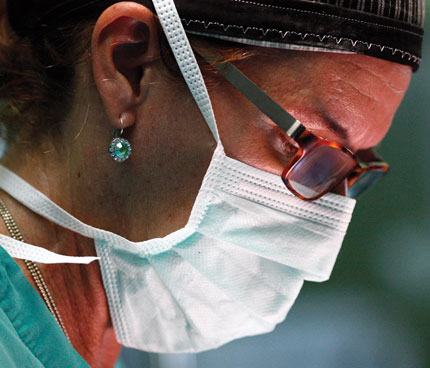
Launching a nonprofit isn’t easy. It requires determination, long hours, and, of course, money. Chef Bill Bracken invested his life savings to launch his California nonprofit, Bracken’s Kitchen, and gave up a career in posh restaurants to feed those in need. The work, however, “satisfies my soul,” he said.
Others juggle full-time careers with humanitarian endeavors. Tammy Neblock-Beirne, M.D., is a surgeon in Kansas City, and in her free time, she performs pro bono operations in countries such as India and Mali as the co-founder of One Global Village. John Alex is a successful financial advisor in New York City who founded United Aid Foundation, an international relief organization. Alex and UAF frequently work in horrific conditions, whether in post-earthquake Haiti or the Bahamas after Hurricane Dorian (which Alex compared to photos of Nagasaki after World War II). And yet when I traveled with UAF to Mali in 2019, and watched him and his fellow volunteers on a building project in a remote village, I knew that he preferred the heat, dust, and wandering chickens over any air-conditioned day on Wall Street.
“I get anxious when life isn’t being lived,” he told me.
7. Kindness Is Everywhere
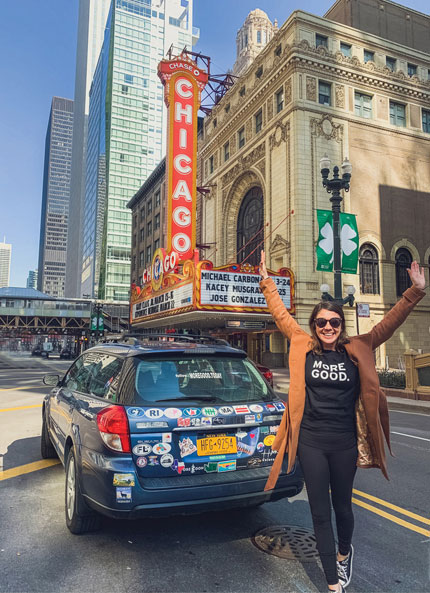
One of my favorite Everyday Heroes pieces focused on Mary Latham, a wedding photographer from Long Island. When I met Latham in Maryland in late 2019, she was in year three of a quest to collect stories of kindness in all 50 states. The road trip was inspired by her mom, who died in 2013. After the 2012 shootings at Sandy Hook Elementary in Connecticut, Latham’s mother had said, “Mary, there are always going to be tragedies in the world, but there will always be more good — you just have to look for it.”
Which is what she did. As she crisscrossed America in her late mother’s Subaru, Latham documented kindnesses both small and large. One of her favorite stories involved a bank teller in Rhode Island: The teller was having a rough day, and a customer asked if she was okay. “It’s nothing some M&Ms won’t fix,” she said. Thirty minutes later, the customer returned and slid a bag of M&Ms under the teller’s window.
“I love telling that story, because that’s something we can all do,” Latham said. “A bag of M&Ms. We feel like an act of kindness has to be big, but it can be buying someone a cup of coffee. Or just smiling more.”
By seeking kindness, Latham inspired kindness. Mechanics who heard her story volunteered to service her car. Her GoFundMe campaign raised close to $30,000 to cover expenses. Strangers invited her to stay in their homes. Michael Quesnell was leery when his wife asked Latham to stay at their home in Ohio, but the experience, he said, was transformative. “I’ve found myself looking for ‘more good’ based on Mary’s mom’s promise that it’s out there,” he said. And he has found it, spotting kindnesses that, he admits, he would have otherwise missed.
That’s also what we’re doing with this column: Revealing kind acts, and kind people, in an often divided country. I look forward to sharing more stories of Everyday Heroes.
To find the entire collection of Ken’s Everyday Heroes stories, go to saturdayeveningpost.com/category/everyday-heroes/.
Ken Budd has written for The Atlantic, The Washington Post, National Geographic Traveler, and many more. He is the author of The Voluntourist.
This article is featured in the March/April 2024 issue of The Saturday Evening Post. Subscribe to the magazine for more art, inspiring stories, fiction, humor, and features from our archives.
Become a Saturday Evening Post member and enjoy unlimited access. Subscribe now
